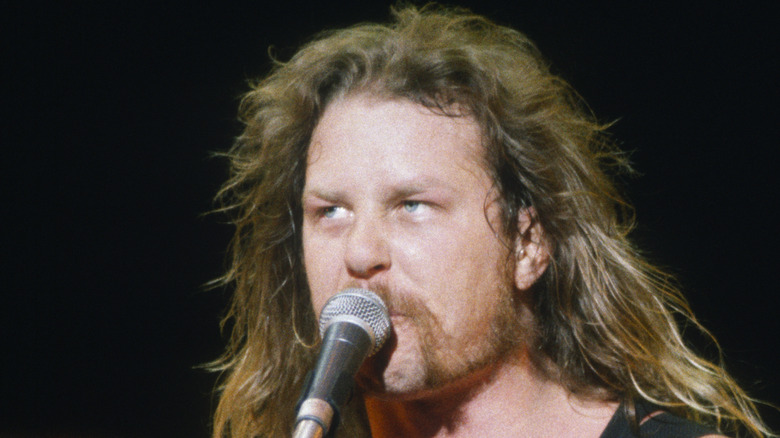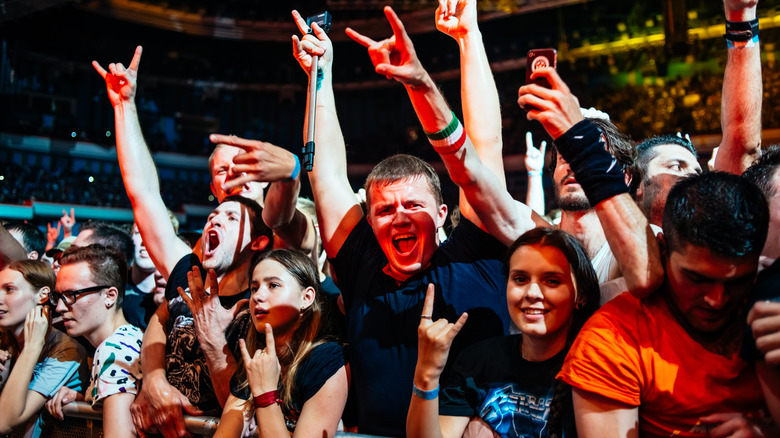The Time When 1.6 Million Soviets Went To See Metallica
As the final years of the Soviet Union's existence wound down and Mikhail Gorbachev's efforts to safely open the country failed, its over 280 million inhabitants began to live in constant uncertainty. Juxtaposing this period was an increase in westernization, with Soviet citizens exposed to western-style commercialism and companies such as Pizza Hut, McDonald's, and PepsiCo (Pepsi at one point even received naval ships from the cash-strapped Soviet government as payment).
Western music had even more time to work its way into Soviet culture, with underground Soviet rock bands existing since the 1960s and musicians such as Elton John being allowed to tour the country in 1979. It was September 28th of 1991 however — 89 days before the Soviet Union's official collapse on December 26, and a month after a coup attempt – that the people's embrace of rock 'n' roll could be put on unprecedented display when the country's first outdoor concert was held to an enormous crowd of 1.6 million (via Travel Tomorrow).
Metallica was the focal point on a day of musical freedom in Moscow
On Tushino Airfield in Moscow, these music lovers flooded in to see a host of bands that included AC/DC, Motley Crüe, and the most beloved by the crowd on that day, Metallica (via The Musicman). The concert was the first of its kind in the country, and per video recordings and witnesses the positive atmosphere was infectious to the point that many Soviet police (intended to maintain order) and nearby military members began to enjoy the music along with the crowd.
It was a remarkable sight for both the crowd and performers and while exceeded in size by later concerts, the massive rock concert was a new phenomenon for Moscow. What's even more remarkable is that while there were injuries, it is reported that no audience members were inadvertently killed amidst the massive gathering (via Meduza). While the suffering of the Russian people would only increase during the 1990s, the concert was for many a fond memory and a major cultural turning point.

